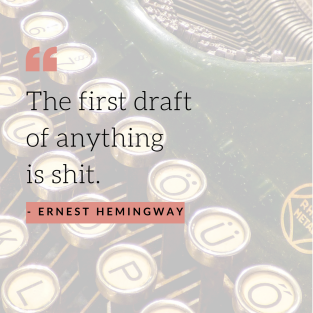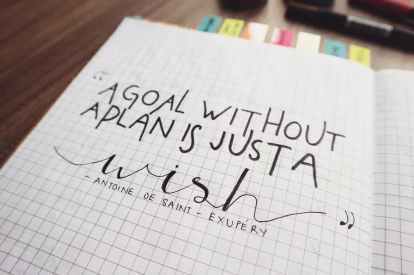Good morning, superstars. I hope you’ve all had a brilliant week.
For me, it’s been another week of editing. Does it ever end? With editing on the brain it seemed only appropriate for this weeks blog post to focus on editing. And so I’ve made a list of novel editing mistakes to avoid. Take a look…
1. Not editing
The first, and most simple point; not editing is the biggest mistake you can make. Hemingway didn’t tell us “the first draft of anything is shit” as a joke. Even if you are a writer who edits as you write, your novel will still need further editing. Perhaps not as much, perhaps just as much. But when you write a novel the story changes as you go, and mistakes and plot holes lurk in everybody’s early work. There is no shame in needing to edit. The greats all have to, and so do we.

2. Editing too soon
There is a list of do’s and don’ts for finishing a first draft. And that includes taking a break after finishing your first draft and not trying to re-read/edit straight away. If you dive straight into editing you will be blinded by your closeness to the story. You need a little time away so that you can come back to it with fresh eyes, which will allow you to spot issues far easier. I’m not sure if there’s a universal suggestion for how long you should take. Perhaps a month, though if you’re too eager to wait I would suggest at least a week.

3. Keeping scenes that don’t work
Is there anything more heartbreaking than realising one of your favourite scenes just…doesn’t work? Perhaps it hinders your protagonists progress, or slows down the pacing of the novel. Whatever the reason, it sucks. But if you keep these scenes just because you love them then you’re making a huge mistake. In my early edits I lost a scene that had been in my imagination for years, because it simply did nothing for the story. I tried keeping in another scene I loved, only for beta readers to confirm what I already knew; it wasn’t needed, it made no sense, it was repetitive…Sometimes you just have to let them go.

4. Not getting feedback
I mentioned beta readers in the point above. You should absolutely seek feedback and advice while you’re still in the editing process. This can be from friends and family, or from beta (alpha) readers. These readers should look at your work and offer you honest feedback. Yep, that DOES mean coming to grips with criticism. It is the only way to improve. If you don’t get feedback you only have your own opinion on what’s working and what doesn’t. You’re less likely to spot plot holes, as you know the ins and outs. You need impartial readers to tell you how it is.

5. Not reading your novel on a different device
It is amazing how reading your novel on a different platform to your computer/laptop can help you spot mistakes. I made huge editing progress when I decided to print my work in progress, and read it on paper instead of on screen. You could try printing yours too, or even reading it on a kindle gives you a new perspective.

6. Editing too much
Is there such thing as editing too much? I’m not sure. But part of me thinks that too much editing will surely take away the rawness of your story, and you don’t want to edit away your voice. You need to move on at some point, so make sure you reach a point where you think you novel is ‘finished.’ If your next step is to submit to agents/publishers, go for it. You’ll soon know if something isn’t working, and you may even receive feedback on what to improve going forward. Therefore, I’m not saying you will never edit your work again. But there must come a time where you bite the bullet and say, for now, enough is enough.

Are you editing your novel? Do you enjoy it?
I’m enthralled by the editing process and would so love to hear your thoughts on it. So please do comment, or contact me, to chat.
Until then,
Keep editing,
M
x
Find me on facebook, twitter or instagram – I’d love to follow your writing journey!


I’ve heard some people suggest using text-to-speech (and headphones) to get a different voice for personal proofreads. I haven’t tried that yet but I might, one day.
And I’d personally say that of what you said, #3 is probably the hardest. It’s not only about removing the scene itself but also making sure that the flow is undisrupted by the removal (or replacement if you write something different for that point in the story).
LikeLiked by 2 people
I’ve never done that either, Tomas – thanks for sharing. Could be worth a go. And you’re so right about making sure scene removal doesn’t effect the flow of the story. That is another edit job in itself !
LikeLiked by 1 person
I am blind and write with text-to-speech software. It does help me find the awkward places just by how the writing is read back to me.
LikeLiked by 1 person
Text to speech is great for line editing. When the robot voice hits a typo you can catch it even if you zone out a bit.
LikeLiked by 1 person
I always print out each chapter as I go along, then read it later, perhaps in the garden, away from screens! Then back to the manuscript to make the changes ( and there always are ), if necessary print the chapter again.and put it away in the real file with the other real paper chapters. Brain ready for new chapter… When I reach the end of my WIP, which should be soon, then I will relax and enjoy reading the whole book through on paper, seeing it as a whole for the first time – has it worked, what are the plot holes!
LikeLiked by 2 people
Thanks for commenting, that sounds like a great system! 🙂
LikeLiked by 1 person
I agree with this – not only printing, but reading the print-out away from the screen to avoid immediate correction. Also, reading the text aloud.
LikeLiked by 2 people
All excellent points, M (as usual 😊). Number five is my favourite tip. It makes such a difference when you look at your words from another device. Although I’ve never mastered reading my work in a way where I can trick myself into forgetting I penned it, reading it from a kindle or a printed piece of paper gets me as close as I’ll ever be.
LikeLiked by 3 people
I’m with you there,you can never fully remove yourself from the story. Maybe when we’re old and grey we will read them back with some distance, haha! x
LikeLiked by 1 person
😅 maybe.
LikeLike
Reblogged this on Chris The Story Reading Ape's Blog.
LikeLiked by 1 person
Thank you 🙂
LikeLiked by 1 person
Welcome 👍😃
LikeLike
Everything you have said here makes perfect sense.
LikeLiked by 1 person
Thank you so much 🙂 x
LikeLiked by 1 person
These are all essentials, M.L. I wonder if you are interchangeably using the word editing for revising. I find it helpful to differentiate between the two. I think of your tips more as revising, and editing as fine-tuning sentence structure, word choice, grammar, and consistency–basically the icing on the best cake you can make.
LikeLiked by 1 person
Hi Evelyn. Definitely a difference between the two, though I have found all of these steps useful in editing stages. Beta feedback, reading on different devices etc have all helped me see where sentence structure and word choices etc have needed editing/changing. I suppose it depends on the individual and their work. Thank you for reading and sharing a valid point ❤
LikeLike
I enjoy editing because it means that the hard part — actually writing the story — is done, and it’s all downhill from here.
LikeLiked by 1 person
Glad you enjoy editing, I do too and it makes it more bearable!
LikeLiked by 1 person
I thought of this post, “Novel Editing Mistakes to Avoid,” when I learned that a story I’d submitted to a YA anthology was not accepted.
I was bummed and glad, because I realized a number of edits that needed to be made.
But a number of criticisms were actually important to the story.
Being slice of life, my story lacked plot development, conflict, and left a few details up to the reader — all aspects of the genre. (According to Wikipedia.)
I suppose what I’m getting at is a question that’s been on my mind for a little bit:
What do you do when the aspects of your story that are being criticized are essential to the story?
Thank you for reading. 🙂
LikeLiked by 1 person
Hey. I suppose if they are essential aspects, then you don’t need to delete them. Just find ways to tighten them up, make them more exciting etc. Could one of these aspects be involved in more conflict? If you’re certain they have to stay, then keep them. It’s your story at the end of the day 🙂 But take onboard any advice that might suggest it needs tweaking. Good luck with your edits!
LikeLiked by 1 person
Thank you for your feedback. It was very helpful. 🙂
LikeLiked by 1 person
These were great tips, thanks! I love how your advice is so straightforward and practical, and the HD pictures and quotes really add more quality to your blogs as well. Please keep up the great work and more power to you and your story (storiies) as well! God bless you!
LikeLiked by 1 person
Aw, thank you my lovely x
LikeLike
Reblogged this on Writing for the Whole Darn Universe.
LikeLiked by 1 person
Thank you 🙂 x
LikeLiked by 1 person
Reblogged this on Anna Dobritt — Author.
LikeLiked by 1 person
Thank you 🙂
LikeLike
Beta reading or any kind of feedback is huge. You cannot do it alone and you shouldn’t.
Great list.
LikeLiked by 1 person
You’re so right Bryan! Thanks for commenting ❤
LikeLike
Great post! In my opinion, getting feedback is the most important thing you can do with your MS. I think it is important that you only open up to feedback when you’re sure your vision in the story is strong. If you’re not ready, you can end up getting swayed too easily by the opinion of others.
LikeLiked by 1 person
Hi Madeline. Such a great point. Feedback is essential, but you’re right to point out not to get it too early. ❤ Thank you for reading and commenting x
LikeLiked by 1 person
Reblogged this on Author Don Massenzio and commented:
Check out this helpful post from the Uninspired Writers blog on Novel Editing Mistakes to Avoid.
LikeLiked by 1 person
Thank you 🙂 x
LikeLiked by 1 person